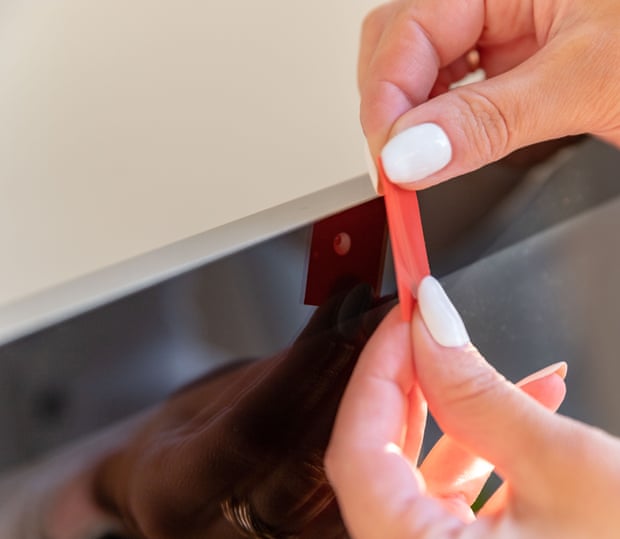‘Ask all the time: why do I need this?’ How to stop your vacuum from spying on you | Smart homes
This month Amazon signed a deal to acquire smart vacuum cleaner company iRobot — the makers of Roomba — for a hefty $1.7 billion. As some see it, that should worry us if the purchase goes through.
“It’s all about the data,” says David Vaile of the Australian Privacy Foundation.
Privacy advocates like Vaile fear the robot vacuum will give Amazon access to the floorplans of users’ homes by using mapping features that some iRobot products already offer.
Amazon has yet to release details on what existing and future iRobot data will be used for; and the company told Reuters that they protect customer privacy and do not sell their data.
But Vaile says of big tech companies, “They’re about data collection, and the products and services are really just decoys to lure in and hopefully trap unsuspecting data subjects.
“Their opportunities to manipulate and exploit you, having spied on you, are more or less unlimited and only increasing.”
At its most gentle, the data collected by smart devices can be used by manufacturers to figure out how to sell their products more effectively. Worst-case scenarios, it could mean employees listening in to conversations recorded by your smart speakers or sharing your doorbell camera videos with the police. And like anything connected to the internet, there is also a risk that hackers could gain access to your private data.
But despite the risks, smart home technology is booming. Even if you’re not inclined to buy an internet-connected aquarium or toilet that tracks and analyzes your stool samples, chances are you have at least one smart device at home. This can be the TV on which you stream Netflix, your baby monitor or the air conditioner that you control with an app.
So it is possible to have a smart home and Not be spied on? Well, something like that.
The big decisions
From a privacy perspective, the smartest home is a dumb home.
“That’s the real answer: Don’t do it,” says Vaile. Otherwise, he recommends reducing your system as much as possible.
“Just keep asking, ‘What do I need this for?'” he says. “Because each of the fancy new tricks will entail both data protection and data security costs.” The simpler the system, “the better off”.
Simplify means disabling certain features on existing devices and being careful when purchasing.
Andre Lackmann, an IT pro from Sydney, has many smart devices at home – but no surveillance cameras. This limits his data protection and security risk to a level that he is comfortable with.
To do this yourself, he suggests imagining the consequences of a data breach. “If they know when my light went on and off or how warm it is in the living room, that’s not a problem,” says Lackmann. “But if they can get a video feed of the bedroom, that’s a bit of a problem, isn’t it?”
It’s also about determining what data you’re willing to trade in exchange for greater convenience. Lackmann, for example, has Philips Hue smart lights — but has disabled the feature that lets him control them remotely. This feature requires an internet connection, and turning off the lights when he’s out feels like a small reward for letting business into his home.
Lackmann allows his air conditioner to be accessed remotely, however, because for him, being able to set the temperature before he gets home is useful enough to make his data sacrifice worthwhile.
If you’re in the decision-making stage, you can also consult Mozilla’s “Privacy Not Included” guide before you buy to get an idea of how creepy different products are.
You also need to balance your risk of being hacked with privacy concerns. If there is poses a security risk, larger companies like Google and Amazon will release updates that quickly fix the problem. A surveillance camera fished out of the bargain box should not be, says Lackmann.
“[With] smaller no-name brands, it is not the case that the devices are bad per se. In general, they don’t get a lot of customer service,” he says. “[Smaller brands] are much less likely to get security updates.” To that end, it’s also important to regularly install the updates for your products once they’re in your home.
The facility
For Matt Furnell and Justin Kern of JFK Automation, a company that installs smart home systems, the key to privacy is to avoid cloud-based services and internet-connected devices as much as possible.
“As soon as you connect to the Internet, you are in the hands of the manufacturer in terms of data protection,” says Furnell. “So you should give them as little as possible to work with.”

For many products, the pair say, cloud connectivity is inevitable, but others allow workarounds — like sending security camera footage to a hard drive in your home.
If you are If you’re trying to stay away from the cloud, you’ll have to skip the assistant feature on the speakers. Whether you ask Alexa, Siri or Google, Kern and Furnell say every voice control product currently available in Australia connects to the cloud.
For particularly privacy-conscious customers, JFK Automation does not connect the system to the internet at all. This means customers forgo the ability to remotely control their devices and instead operate everything through an offline app.
Putting your smart home devices on a separate internet network from your computers and phones can help with security, but not privacy.
That’s what Lackmann does. “I have one network where all of my home automation gear is, and another network where all of my personal data is — our laptops, computer storage, files and stuff like that,” he says. When its smart devices are compromised in this way, “they become disconnected from the more important information.”
Easier fixes
Do you already have smart devices at home? You can still minimize what companies collect and what hackers can get.
To understand how many of your home appliances depend on the Internet, Furnell and Kern recommend turning off your router to see what’s no longer working. From there, you can choose to remove devices from your WiFi if you don’t think they need to be online.
You can also turn off any voice assistants and cover up cameras you don’t need – for example, by sticking paper over your baby monitors when they’re not in use.

Pay special attention to home assistant products with screens. “People don’t necessarily believe that the cameras make a difference,” says Kern. “But they’re probably watching what you’re doing.”
For some devices, you may be able to opt out of sharing analytics with manufacturers during the setup process. However, Furnell says your data will still be stored – you should be able to opt-in and delete.
About every three months, Furnell logs into his devices to see what they’ve collected and what they’re doing with the data, then he wipes the stored data.
However, Vaile warns that messing around with your privacy settings gives a “deceptive sense of… control.”
“Metadata analysis – that is, data collection unaffected by preferences – is probably much more important to them and much more important to you.”
Ultimately, if you want a smart home, you have to accept that convenience comes with privacy.
“You can’t have your cake and eat it, too,” says Kern. “If you want all of these functions and features … you need to be connected to the internet and there’s a risk that someone might have your data.”